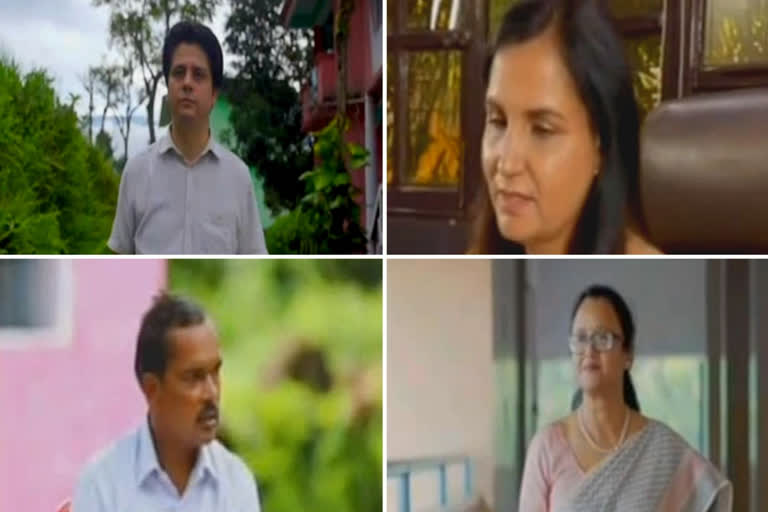New Delhi: Introducing 'bell-free school', 'child parliament', gender sensitisation exercises and 'global citizenship curriculum' are among the innovative teaching-learning practices adopted by 47 teachers who have bagged the National Teachers Award this year.
Mahipalsinh Sajjansinh Jetavat, a teacher at Shree Tidana Primary School in Gujarat, introduced the concept of a "bell-free school".
Also read: President Kovind confers National Teachers' Awards
He said the initiative has encouraged children to attend classes regularly.
"I experimented with innovative practices for a child-centred school such as a children's parliament, making 'gyankutir' where children record their own stories, use of ICT technology, promotion of girl child education through local sponsors and project-based stress-free education. These efforts have borne excellent results in terms of enrolment figures," Jetavat said.
Jyoti Arora, the principal of Mount Abu Public School in Delhi, has introduced a "global citizenship curriculum" in schools to sensitise children about the UN Sustainable Development Goals.
Prakashchandra Narbheram Suthar, the principal of Kanjeli Primary School, implemented his carpentry skills in making interesting kits, models and experiments at a low cost for learning scientific concepts.
Sanjay Kumar Jain, a teacher in Madhya Pradesh, has introduced several teaching-learning practices by using school floors, walls and open spaces as tools for joyful learning.
"I have used the surrounding rocks and boulders as learning materials. Academic attainments in the school have improved with a clear emphasis on learning outcomes whilst making the schooling experience enjoyable for students," Jain said.
Lomas Dhungel, a teacher from Sikkim, has adopted novel methods of teaching geometry, algebra and mathematical concepts through poetry, storytelling and art.
"He has integrated the understanding of nature in the teaching of maths through stability and symmetry. His activities are extremely child friendly and have engaged children whose skills in maths have shown improvement," his award citation read.
The other awardees are Manoj Kumar Lakhra (Haryana), Nardev Singh (Himachal Pradesh), Rajinder Kumar (Punjab), Surender Singh (Delhi), Kewalanand Kandpal (Uttarakhand), Geeta Kumari (Rajasthan), Sindhu Prabhu Dessai (Goa), Mohammad Shahid Ansari (Madhya Pradesh), Akhileshwar Pathak (Bihar) and Basant Kumar Sahu (Odisha), among others.
The Ministry of Education invited self-nomination by teachers through an online portal for the awards.
First level scrutiny was done by the District Selection Committee (DSC) headed by the district education officer. Based on prescribed selection criteria, DSC shortlisted three names and the same were forwarded to the State Selection Committee through an online portal.
This year, the candidates appeared before the jury through a video conference and made presentations. The awards were conferred upon by President Ram Nath Kovind in a virtual award ceremony.
(PTI report)



